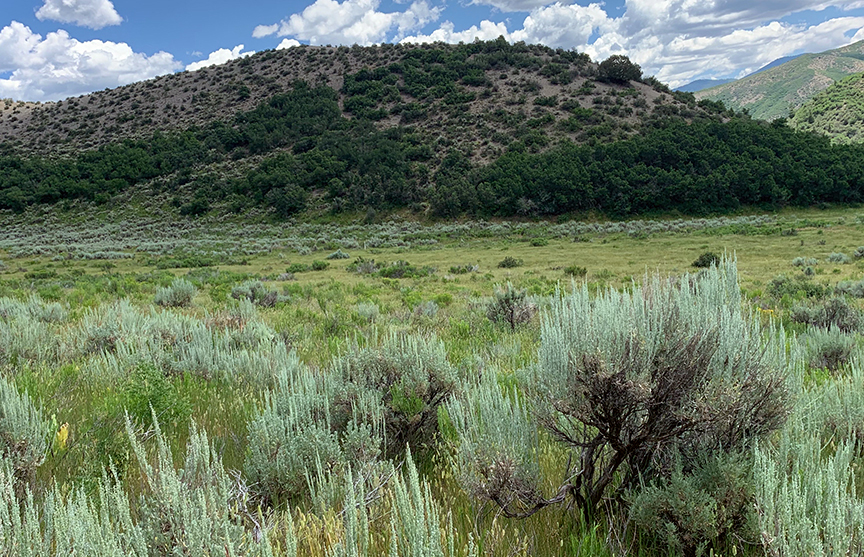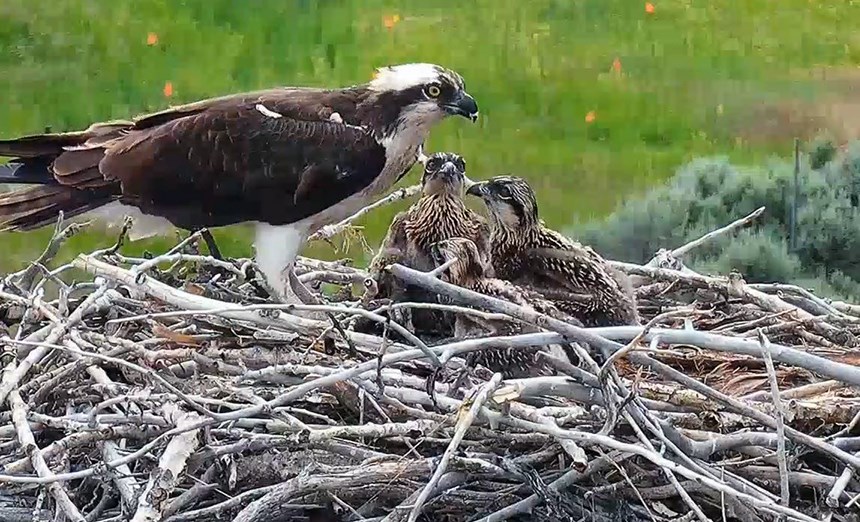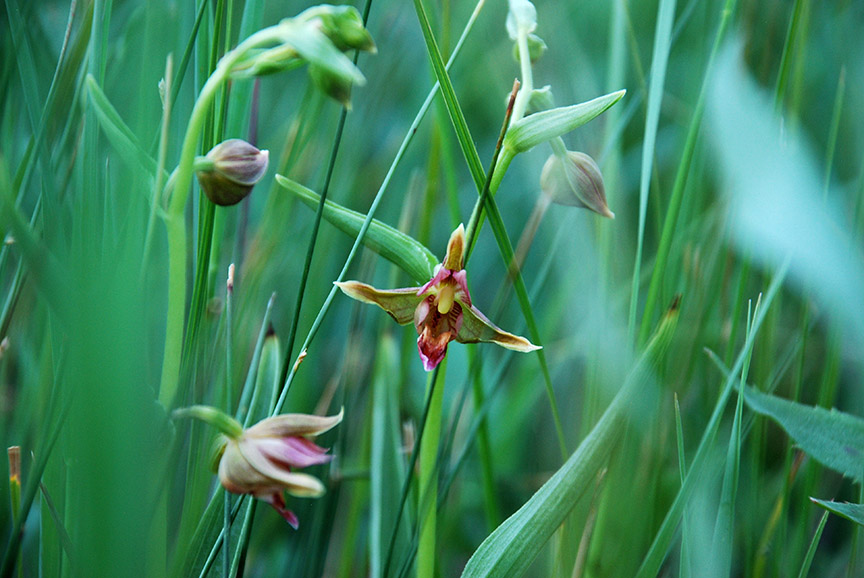Learn More
Sagebrush shrublands – an iconic, but threatened ecosystem

You know the gray-green leaves, you know the pungent smell on a warm summer day, but did you know that sagebrush is more closely related to tarragon than the sage we use to spice our food?
The distinct smell of sagebrush, an iconic plant in the American West and important to many Native American tribes, comes from chemical compounds that are thought to help protect the plants from herbivory (being eaten). (more…)
Emma Osprey family attracts avid fan base

Pitkin County’s open spaces are home to a wide variety of wildlife, but none with a greater fan base than the family of Ospreys at Emma Open Space.
From the time the pair of breeding ospreys return to Emma, usually in late March, until the young fledge in August, the Emma Osprey Cam gives devotees a bird’s-eye view of life atop a tall pole in the midvalley where, for the first time this year, three nestlings are jostling to survive. So far, so good.

